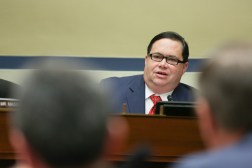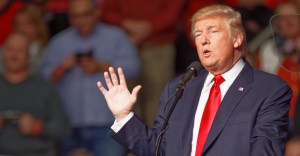 Obama, Romney debate domestic issues (Source: YouTube)
Obama, Romney debate domestic issues (Source: YouTube)President Barack Obama said he would promote jobs by using money saved from the winding-down of the wars in Afghanistan and Iraq to rebuild the nation’s economy during the first presidential debate with Republican challenger Governor Mitt Romney on Wednesday.
In response, Romney said he would look to cut tax rates on middle class Americans and small businesses to help create job growth that would increase the government’s annual revenue and help decrease the deficit.
Wednesday’s debate was the first between the two presidential candidates, held at the University of Denver. The debate focused on domestic issues, namely the economy, healthcare and role of government.
Romney pointed to his five-step plan to help the economy: become energy independent, increase trade around the world, most notably in Latin America, make sure companies and individuals have the educational tools they need to succeed, balance the budget and champion small businesses.
Romney added that he would not cut the military budget or education.
“My number one principle is there will be no tax cut that adds to the deficit,” Romney said
Obama said his opponent’s plan would inevitably result in a higher budget deficit or large cuts to federal programs. “It’s math. It’s arithmetic,” the president said, later adding, “That’s not a recipe for job growth.”
Obama said Romney was promoting the same kind of tax cut proposals that former President George W. Bush pushed through Congress in 2001 and 2003.
“We ended up moving from surpluses to deficits and it all culminated with the worst recession since the Great Depression,” said Obama.
On the deficit, Obama said he “worked with Democrats and Republicans to cut a trillion dollars out of our discretionary domestic budget.”
He continued, “We’ve begun to fight our way back, but we all know that we’ve still got a lot of work to do and so the question here tonight is not where we’ve been but where we’re going.”
In some cases, the candidates mentioned areas of agreement. Both said they wanted to improve education in the U.S., boost energy production and keep Social Security mostly as it is.
However, key technologies issues such as cybersecurity or work visas for skilled workers were not discussed. Sequestration was also not discussed.






